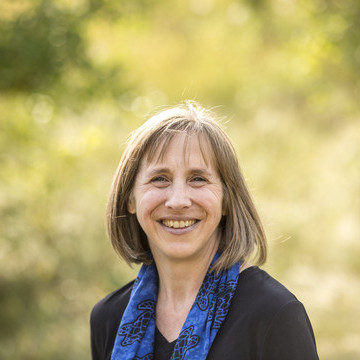Dr. Heather Looy
Biography
Dr. Looy’s research interests relate to two basic elements of human experience: sex and food. Specifically, she studies the biopsychology of human sexuality and gender as well as attitudes toward insects as human food. These topics are linked by her interest in emotions (especially disgust) and moral judgment. She is also interested in the role of faith in people’s decisions about reproductive technology, and in broader questions of embodiment, the biologizing of human nature, human-nature relationships, and science-religion dialogue.
Her research includes both quantitative and qualitative empirical methods, reviews, theory, and integration. She is especially passionate about finding ways to help people understand the value and the limits of biopsychological research for dealing justly with real-life issues of reproductive technology, creation care, gender, sexuality, and nutrition. Students are welcome to ask about and participate in her research.
Dr. Looy was born in Victoria, B.C. and lived there, apart from a five-year stretch in Abbotsford, B.C., until she was 18. She spent much of her childhood delighting in the wild wet coastal beaches and rain forests, and they are still ‘home’ for her spirit. She married her spouse in 1986 and they have one child. Camping and hiking and traveling across Canada are her favourite family holidays. She also loves to bake bread. She is an avid fan of sci-fi, fantasy and mystery novels, movies and television series. She is known for using Star Trek shows to illustrate foundational questions in her courses.
Research interests
- Faith and fertility: the role of personal faith and faith communities in decision-making about reproductive technology
- The relation between disgust and food choice (especially in relation to eating insects)
- Emotions, attitudes toward sexual variations, and human morality
- The biology of sexual orientation, sex, and gender, including intersexuality
- Evolutionary psychology/behaviour genetics: Christian perspectives on its strengths, limitations, implications and applications
- Ecopsychology - human embeddedness (physical, psychological, spiritual) in a natural world.
Heather Looy's LinkedIn
Recent publications
Looy, H., Dunkel, F. V., and Wood, J.R. (2014). How then shall we eat? Insect-eating attitudes and sustainable foodways. Agriculture and Human Values, 31(1), 131-141. Also published online at http://link.springer.com/content/pdf/10.1007%2Fs10460-013-9450-x.pdf
Looy, H. (2013). Losing our humanity: Biologism, bad reduction, and Father Brown. The Midwest Quarterly, LIV(3), 263-278.
Looy, H. (2013). Psychology at the theological frontiers. Perspectives on Science and Christian Faith, 65(3), 147-155.
Looy, H. (2012). Same-sex desire. In D. Haarsma & S. Hoezee (Eds.), Delight in creation: Scientists share their work with the church (pp. 50-69). Grand Rapids, MI: Center for Excellence in Preaching.
Campbell, H.A. & Looy, H. (2009). A Science and Religion Primer. Grand Rapids, MI: Baker Academic.
Looy, H. & Wood, J.R. (2006). Attitudes toward invertebrates: Are educational "bug banquets" effective? The Journal of Environmental Education, 37(2), 37-48.
Looy, H. & Bouma, H. (2005). The nature of gender: Gender identity in persons who are intersexed or transgendered. Journal of Psychology and Theology, 33(3), 166-178.
Looy, H. (2005). Gender and sexual identity: A critical exploration of gender inversion theories of sexual orientation. Journal of Psychology and Christianity, 24(4), 317-331.
Looy, H. (2005). The body of faith: Genetic and evolutionary considerations. Journal of Psychology and Christianity, 24(2), 113-121.
Looy, H. (2004). Embodied and embedded morality: Divinity, identity, and disgust. Zygon, 39(1), 219-235.
Looy, H. & Wood, J.R. (2000) "My Ant Is Coming to Dinner." Proteus: A Journal of Ideas, 17 (1), 52-56.
